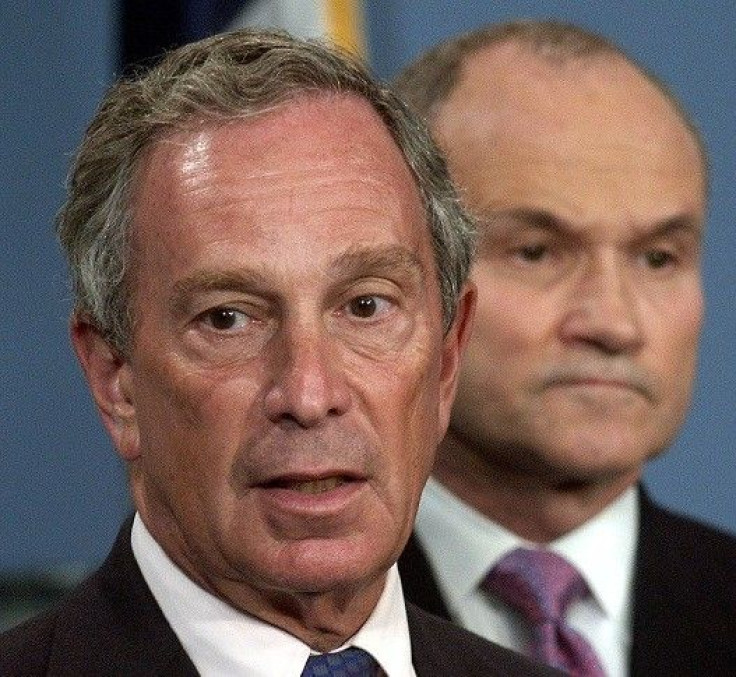No Al Impuesto Bloomberg! NYC Mayor Michael Bloomberg Gets Dragged Into The Mexico Soda Tax Debate

New York City Mayor Michael Bloomberg is on a mission to save the world from giant sodas. And he is not afraid of setbacks: Bloomberg’s crusade might have failed in his hometown, but it has a new shot in a not-so-far away land, Mexico.
Mayor Bloomberg’s name was drawn into the intense debate that is currently undergoing in Mexico over a proposed tax on all sugary drinks. The price of a liter of soda (a little more than 1/4 of a gallon) would go up a peso (8 cents of dollar) -- a minor change apparently, but significant for most households in Mexico.
The proposed measure has divided the country. Part of the government thinks the tax is too low and should be doubled, whereas several sectors of society rabidly oppose it. Retailers, soft-drink bottlers and students are against it, calling it an interference of American ideas in Mexican society.
“No al impuesto Bloomberg (No to the Bloomberg tax),” was the slogan on numerous ads splattered all over Mexico recently.
“Bloomberg has the right to be crazy, but he doesn’t have the right to come here and impose his craziness on us,” said Cuauhtémoc Rivera, leader of Mexico’s National Association of Small Stores, a business group that bought full-page ads in Mexico’s main newspapers last week.
Bloomberg Philanthropies, the charity organization financed by the mayor (who is also the 13th richest person in the world with a net worth of $27 billion), donated $10 million in an effort with “top research and advocacy organizations” to support goals such as “raising taxes on sugar-sweetened beverages,” but it is undisclosed how much of that, if any, went to Mexico.
It is still unclear how much the campaigns, both pro and against, will influence the decision of the Mexican Senate on whether to pass the proposal. When news broke that Mexico topped the ranking of overweight countries, passing the formerly unbeaten champion, the U.S., President Enrique Peña Nieto took it upon himself to reduce the rate of obesity in his country, which currently affects over a third of the population according to the United Nations. With the government engaged in a spate of intense reforms, the measure was included in the fiscal reform proposal; a tax would be added to all sugary drinks.
Mexico is the country in the world where the most soda per capita is consumed: the average Mexican drinks 163 liters (43 gallons) of soft drinks a year. However, Ruth Pedroza Islas, a professor of food engineering at the Universidad Iberoamericana in Mexico City, told Mexican newspaper El Universal that this intake only accounts for 5.5 percent of daily calories.
Pedroza Islas insisted that the tax is not an effective measure against obesity. “It is a very limited way to look at the issue,” she said. She added that there is no proof that soft drinks are a direct cause of obesity. “The money invested by Bloomberg makes the authorities lose credibility,” she also said.
The beverage industry is among the largest retail money-makers, and ad buyers, in the country. Rivera estimated that soft drinks sales account for 40 percent of income at small Mexican stores.
The government predicts that, if approved, the soda tax will bring in the equivalent of $700 million in revenue per year, according to Mexico'x National Public Health Institute. Part of the sum would be invested into installing water fountains in schools around the country, many of which do not have one.
© Copyright IBTimes 2024. All rights reserved.











